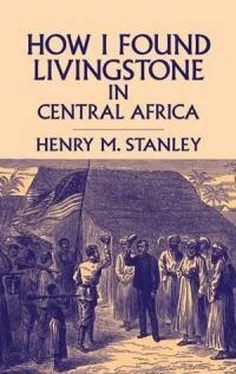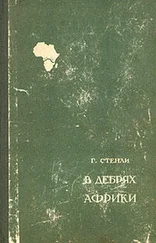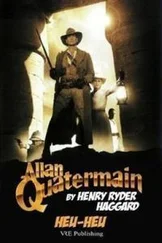Генри Стенли - How I Found Livingstone
Здесь есть возможность читать онлайн «Генри Стенли - How I Found Livingstone» весь текст электронной книги совершенно бесплатно (целиком полную версию без сокращений). В некоторых случаях можно слушать аудио, скачать через торрент в формате fb2 и присутствует краткое содержание. Год выпуска: 1872, Жанр: Биографии и Мемуары, на английском языке. Описание произведения, (предисловие) а так же отзывы посетителей доступны на портале библиотеки ЛибКат.
- Название:How I Found Livingstone
- Автор:
- Жанр:
- Год:1872
- ISBN:нет данных
- Рейтинг книги:5 / 5. Голосов: 1
-
Избранное:Добавить в избранное
- Отзывы:
-
Ваша оценка:
- 100
- 1
- 2
- 3
- 4
- 5
How I Found Livingstone: краткое содержание, описание и аннотация
Предлагаем к чтению аннотацию, описание, краткое содержание или предисловие (зависит от того, что написал сам автор книги «How I Found Livingstone»). Если вы не нашли необходимую информацию о книге — напишите в комментариях, мы постараемся отыскать её.
How I Found Livingstone — читать онлайн бесплатно полную книгу (весь текст) целиком
Ниже представлен текст книги, разбитый по страницам. Система сохранения места последней прочитанной страницы, позволяет с удобством читать онлайн бесплатно книгу «How I Found Livingstone», без необходимости каждый раз заново искать на чём Вы остановились. Поставьте закладку, и сможете в любой момент перейти на страницу, на которой закончили чтение.
Интервал:
Закладка:
Within the city, negro carriers may be heard at all hours, in couples, engaged in the transportation of clove-bags, boxes of merchandise, &c., from store to "godown" and from "go-down" to the beach, singing a kind of monotone chant for the encouragement of each other, and for the guiding of their pace as they shuffle through the streets with bare feet. You may recognise these men readily, before long, as old acquaintances, by the consistency with which they sing the tunes they have adopted. Several times during a day have I heard the same couple pass beneath the windows of the Consulate, delivering themselves of the same invariable tune and words. Some might possibly deem the songs foolish and silly, but they had a certain attraction for me, and I considered that they were as useful as anything else for the purposes they were intended.
The town of Zanzibar, situate on the south-western shore of the island, contains a population of nearly one hundred thousand inhabitants; that of the island altogether I would estimate at not more than two hundred thousand inhabitants, including all races.
The greatest number of foreign vessels trading with this port are American, principally from New York and Salem. After the American come the German, then come the French and English. They arrive loaded with American sheeting, brandy, gunpowder, muskets, beads, English cottons, brass-wire, china-ware, and other notions, and depart with ivory, gum-copal, cloves, hides, cowries, sesamum, pepper, and cocoa-nut oil.
The value of the exports from this port is estimated at $3,000,000, and the imports from all countries at $3,500,000.
The Europeans and Americans residing in the town of Zanzibar are either Government officials, independent merchants, or agents for a few great mercantile houses in Europe and America.
The climate of Zanzibar is not the most agreeable in the world. I have heard Americans and Europeans condemn it most heartily. I have also seen nearly one-half of the white colony laid up in one day from sickness. A noxious malaria is exhaled from the shallow inlet of Malagash, and the undrained filth, the garbage, offal, dead mollusks, dead pariah dogs, dead cats, all species of carrion, remains of men and beasts unburied, assist to make Zanzibar a most unhealthy city; and considering that it it ought to be most healthy, nature having pointed out to man the means, and having assisted him so far, it is most wonderful that the ruling prince does not obey the dictates of reason.
The bay of Zanzibar is in the form of a crescent, and on the south-western horn of it is built the city. On the east Zanzibar is bounded almost entirely by the Malagash Lagoon, an inlet of the sea. It penetrates to at least two hundred and fifty yards of the sea behind or south of Shangani Point. Were these two hundred and fifty yards cut through by a ten foot ditch, and the inlet deepened slightly, Zanzibar would become an island of itself, and what wonders would it not effect as to health and salubrity! I have never heard this suggestion made, but it struck me that the foreign consuls resident at Zanzibar might suggest this work to the Sultan, and so get the credit of having made it as healthy a place to live in as any near the equator. But apropos of this, I remember what Capt. Webb, the American Consul, told me on my first arrival, when I expressed to him my wonder at the apathy and inertness of men born with the indomitable energy which characterises Europeans and Americans, of men imbued with the progressive and stirring instincts of the white people, who yet allow themselves to dwindle into pallid phantoms of their kind, into hypochondriacal invalids, into hopeless believers in the deadliness of the climate, with hardly a trace of that daring and invincible spirit which rules the world.
"Oh," said Capt. Webb, "it is all very well for you to talk about energy and all that kind of thing, but I assure you that a residence of four or five years on this island, among such people as are here, would make you feel that it was a hopeless task to resist the influence of the example by which the most energetic spirits are subdued, and to which they must submit in time, sooner or later. We were all terribly energetic when we first came here, and struggled bravely to make things go on as we were accustomed to have them at home, but we have found that we were knocking our heads against granite walls to no purpose whatever. These fellows- the Arabs, the Banyans, and the Hindis-you can't make them go faster by ever so much scolding and praying, and in a very short time you see the folly of fighting against the unconquerable. Be patient, and don't fret, that is my advice, or you won't live long here."
There were three or four intensely busy men, though, at Zanzibar, who were out at all hours of the day. I know one, an American; I fancy I hear the quick pit-pat of his feet on the pavement beneath the Consulate, his cheery voice ringing the salutation, "Yambo!" to every one he met; and he had lived at Zanzibar twelve years.
I know another, one of the sturdiest of Scotchmen, a most pleasant-mannered and unaffected man, sincere in whatever he did or said, who has lived at Zanzibar several years, subject to the infructuosities of the business he has been engaged in, as well as to the calor and ennui of the climate, who yet presents as formidable a front as ever to the apathetic native of Zanzibar. No man can charge Capt. H. C. Fraser, formerly of the Indian Navy, with being apathetic.
I might with ease give evidence of the industry of others, but they are all my friends, and they are all good. The American, English, German, and French residents have ever treated me with a courtesy and kindness I am not disposed to forget. Taken as a body, it would be hard to find a more generous or hospitable colony of white men in any part of the world.
CHAPTER III
ORGANIZATION OF THE EXPEDITION.
I was totally ignorant of the interior, and it was difficult at first to know, what I needed, in order to take an Expedition into Central Africa. Time was precious, also, and much of it could not be devoted to inquiry and investigation. In a case like this, it would have been a godsend, I thought, had either of the three gentlemen, Captains Burton, Speke, or Grant, given some information on these points; had they devoted a chapter upon, "How to get ready an Expedition for Central Africa." The purpose of this chapter, then, is to relate how I set about it, that other travellers coming after me may have the benefit of my experience.
These are some of the questions I asked myself, as I tossed on my bed at night:-
"How much money is required?"
"How many pagazis, or carriers?
"How many soldiers?"
"How much cloth?"
"How many beads?"
"How much wire?"
"What kinds of cloth are required for the different tribes?"
Ever so many questions to myself brought me no clearer the exact point I wished to arrive at. I scribbled over scores of sheets of paper, made estimates, drew out lists of material, calculated the cost of keeping one hundred men for one year, at so many yards of different kinds of cloth, etc. I studied Burton, Speke, and Grant in vain. A good deal of geographical, ethnological, and other information appertaining to the study of Inner Africa was obtainable, but information respecting the organization of an expedition requisite before proceeding to Africa, was not in any book. The Europeans at Zanzibar knew as little as possible about this particular point. There was not one white man at Zanzibar who could tell how many dotis a day a force of one hundred men required to buy food for one day on the road. Neither, indeed, was it their business to know. But what should I do at all, at all? This was a grand question.
I decided it were best to hunt up an Arab merchant who had been engaged in the ivory trade, or who was fresh from the interior.
Читать дальшеИнтервал:
Закладка:
Похожие книги на «How I Found Livingstone»
Представляем Вашему вниманию похожие книги на «How I Found Livingstone» списком для выбора. Мы отобрали схожую по названию и смыслу литературу в надежде предоставить читателям больше вариантов отыскать новые, интересные, ещё непрочитанные произведения.
Обсуждение, отзывы о книге «How I Found Livingstone» и просто собственные мнения читателей. Оставьте ваши комментарии, напишите, что Вы думаете о произведении, его смысле или главных героях. Укажите что конкретно понравилось, а что нет, и почему Вы так считаете.












